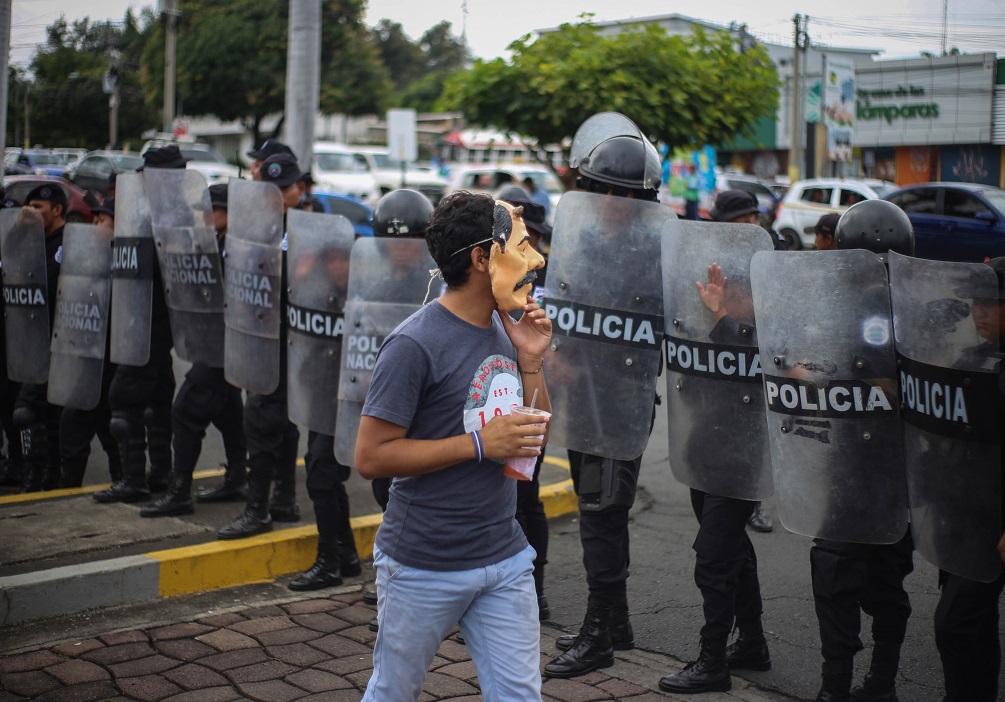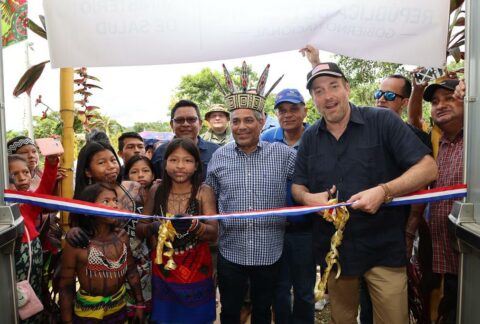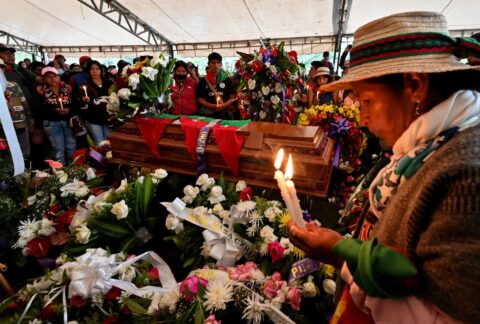International organizations are exerting pressure to prevent more abuses from the Nicaraguan government and restore democracy.
Nongovernmental organization (NGO) Human Rights Watch (HRW) urged the European Union (EU) to implement the individual sanctions presented on October 14, 2019, against President Daniel Ortega and six top members of the Nicaraguan Police, who are accused of committing multiple human rights violations.
The EU established restrictive measures against people and entities responsible for human rights violations in Nicaragua, after the clampdowns on protests against the government that began in April 2018. According to a press release from the EU, political persecutions are still ongoing, and there are concerns over democratic governance.
“Now that the EU has a new legal framework to sanction Nicaraguan authorities, it should act promptly,” José Miguel Vivanco, HRW director for the Americas, told the press. “Pressure is crucial to prevent more abuses and ensure that actions constituting serious crimes are punished in accordance with international law.”
Some of the restrictive measures include travel bans to the EU and asset freezes for individuals and some entities. Private individuals and companies in the EU are also prohibited from making funds available to those designated on the list. The sanctions are specific and were designed to not hurt the Nicaraguan population.

“Although Ortega seems not to have problems with this sort of mechanism, it’s a harsh blow against him, his family, and his support base, because they conduct their financial transactions in Europe. Ortega will be incapable of further enriching his support base, especially the businessmen who support him,” Eliseo Núñez, an attorney specializing in public policies and statutory law, told Diálogo from Managua. “We trust that the new European Council will soon apply the penalties agreed on by the 28 EU members.”
The measure would also have economic repercussions for the country, as European businessmen would have little interest in establishing commercial relations with sanctioned officials, Carlos Tünnermann, chief negotiator for the NGO Alianza Cívica Nicaragua, told Spanish news agency EFE. He added: “The government has the opportunity to halt sanctions if it resumes negotiations to find a solution to the crisis.” The measures are a political blow, said pro-government online news portal El 19 Digital.
The penalties the EU proposed would add to those the United States and Canada have imposed.
In December 2018, the Organization of American States’ Inter-American Commission on Human Rights reported that the regime’s “brutal repression” left 300 dead and thousands exiled. Since then, the Nicaraguan government has intensified persecutions against civil society and freedom of the press, shut down media outlets, and banned several international organizations that monitored the human rights situation in the country.
“To achieve Ortega’s exit, dissidents and the international community must intensify the pressure against the Nicaraguan government until democracy in the country is restored,” Núñez said.
“The most important international actor to do this is the United States,” Enrique Sáenz, political analyst and former president of the Sandinista Renovation Movement, told Nicaraguan newspaper La Prensa. “The regime will only cede to internal pressure and international sanctions,” he concluded.









